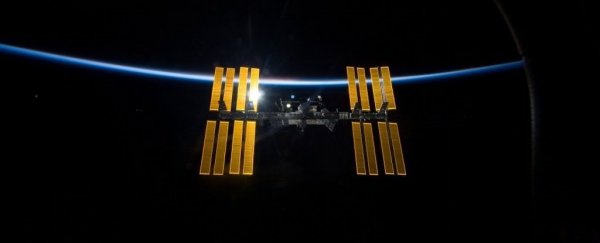The head of Russia's space agency on Saturday said that the country would leave the International Space Station, which Moscow said is the result of economic sanctions imposed as a result of the country's conflict in Ukraine, according to Bloomberg.
Two Russian state news agencies – Tass and RIA Novosti – on Saturday reported that Roscosmos General Director Dmitry Rogozin said in an interview that the decision had already been affirmed.
"The decision has been taken already, we're not obliged to talk about it publicly," he reportedly said on state television.
"I can say this only – in accordance with our obligations, we'll inform our partners about the end of our work on the ISS with a year's notice."
Rogozin earlier in April blasted the litany of Western economic sanctions imposed on Russia, stating that Roscosmos would halt cooperation on the International Space Station with NASA and the European Space Agency.
"I believe that the restoration of normal relations between partners in the International Space Station and other joint projects is possible only with the complete and unconditional lifting of illegal sanctions," he tweeted at the time.
Since Russia invaded Ukraine in late February, the United States – along with the European Union and the United Kingdom – have imposed an array of economic sanctions against Moscow, Russian President Vladimir Putin, and many individuals in the leader's inner circle.
For years, the space station had been a bright spot in US-Russia relations, which is notable given the past relationship that the countries had in the Cold War-era "space race," where they both aggressively sought to achieve dominance in the exploration of outer space.
However, Russia for months has found itself isolated on the world stage, with the bonds of the multinational project fraying amid Putin's advances.
Per Bloomberg, three Americans and an Italian astronaut arrived at the space station earlier this week, alongside three Americans, three Russians, and a German crewmate who were already onboard.
NASA reportedly intends to continue running the space station through 2030, according to the news outlet.
This article was originally published by Business Insider.
More from Business Insider:
